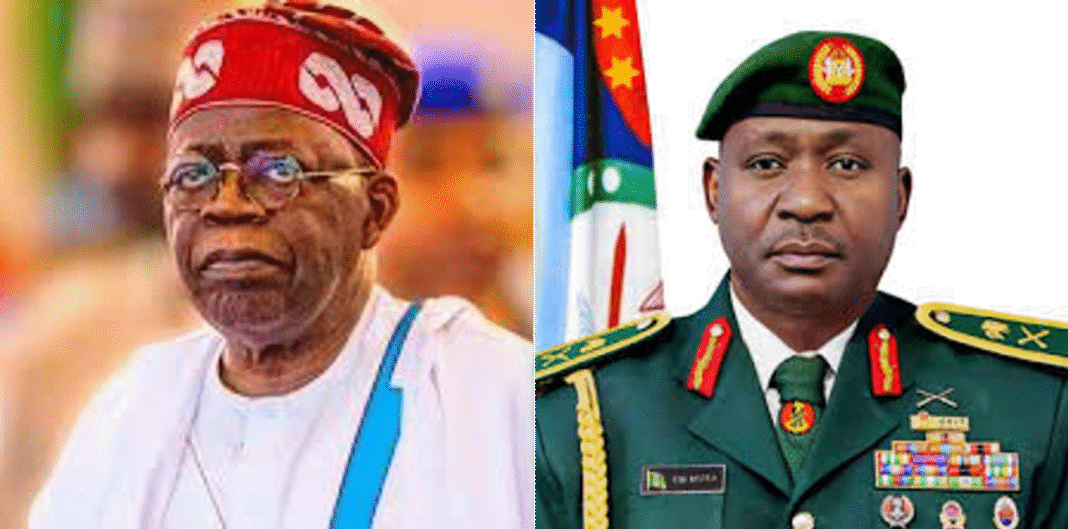President Bola Tinubu’s handling of Nigeria’s escalating security crisis has come under scrutiny following revelations by the Chief of Defence Staff (CDS), General Christopher Musa, that internal saboteurs within the military may have played a role in the recent Benue massacre. The CDS’s statement has sent shockwaves across the nation, as citizens grapple with a government that appears increasingly unable or unwilling to protect them.
Gen. Musa warned of deliberate efforts by individuals within the security apparatus to sabotage operations aimed at restoring peace in the region. His comments, coming just days before Tinubu’s scheduled visit to Benue, have only intensified public anger and scepticism about the president’s ability to lead effectively in times of crisis. The general’s admission raises serious questions about the integrity of the nation’s defense institutions under Tinubu’s leadership and the president’s competence in addressing internal crisis.
The president’s silence on the massacre in Benue and his delayed response have been perceived as both insensitive and politically miscalculated. Despite the attack reportedly claiming about 200 lives, Tinubu’s public remarks referred to it as “senseless bloodletting,” without acknowledging the scale of the tragedy or the victims themselves. Meanwhile, protesters in Makurdi demanding justice for the killings were met with tear gas and water cannons an act that further estrange the grieving communities and painted a damning image of the federal government’s priorities.
This pattern of inaction is not new. Despite Tinubu’s past statements while in opposition demanding swift responses to insecurity and calling then-President Jonathan to account, his own administration has presided over worsening violence. Nigeria recently climbed to 6th place in the Global Terrorism Index, while other West African nations like Burkina Faso have recorded improvements. Attacks by groups such as Boko Haram, ISWAP, and the newly emerged Mahmuda and Lakurawa factions continue unchecked. Even military bases are not spared, as reports confirm armed raids on Nigerian Army installations in Borno State.
7
The disconnect between Tinubu’s rhetoric and his actual leadership has become evident. While internal sabotage is a serious concern, so too is the lack of transparency and urgency from the presidency.
Many believe a proactive leader would have acted immediately to visit both Benue and Niger States, where floods recently claimed over 200 lives and displaced thousands. Instead, Tinubu remained in Abuja to commission a water project, postponing any visit to the victims until later in the week.
As the insecurity continues, the President’s failure to hold his government accountable and confront the rot within Nigeria’s armed forces not only undermines public trust but also leaves the nation vulnerable.
For a president who once demanded accountability from others, his refusal to deliver it now raises a troubling question: Is Tinubu truly capable of securing Nigeria, or is he simply repeating the failures he once condemned?

